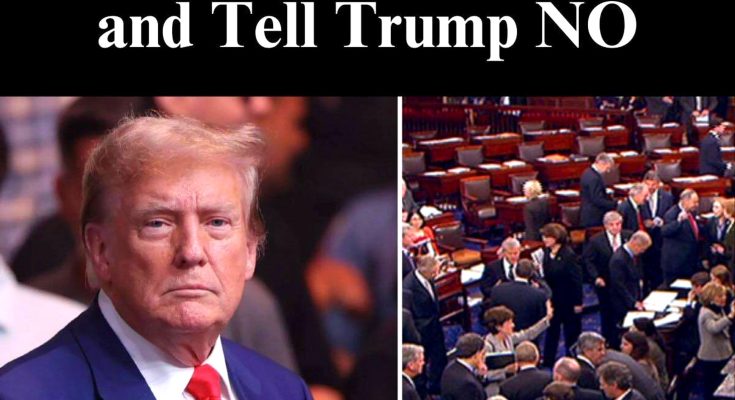In a rare show of bipartisan opposition, four Republican senators have voted alongside all Democrats to reject President Donald Trump’s controversial tariffs on Canadian goods. The Senate’s vote, which passed with a margin of 51-48, blocks the administration’s plan to impose the tariffs, which were initially introduced under claims that Canada was insufficiently addressing the flow of fentanyl into the United States.
The four Republicans who joined the Democrats in opposing the tariffs were Senators Mitch McConnell of Kentucky, Lisa Murkowski of Alaska, Susan Collins of Maine, and Rand Paul of Kentucky. These lawmakers voiced concerns about the economic impact of the tariffs, citing potential harm to American consumers and businesses that rely on imports from Canada.
The proposed tariffs, which were part of a broader set of trade measures under Trump’s emergency declaration, had sparked intense debate. Proponents argued that they were necessary to combat the opioid crisis and force Canada to take stronger action against fentanyl trafficking. However, opponents of the measure warned that the tariffs could escalate tensions with one of the United States’ closest trading partners and disrupt supply chains, leading to higher prices for American consumers.
Senator McConnell, one of the Republicans opposing the tariffs, called them “bad policy” and expressed his concern that trade wars with allies could undermine the stability of the global economy. He added that such measures tend to hurt working families the most.
In a press conference following the vote, President Trump expressed frustration with the Republican defectors, urging them to reconsider their stance. He also suggested that he would veto the resolution if it passed the Senate and reached his desk. Trump has continued to advocate for the tariffs, calling them a necessary step to address national security threats posed by illegal drugs entering the U.S. from Canada.
The Senate’s rejection of the tariffs is a significant moment in the ongoing trade policy debate within the Republican Party. While the party has generally supported Trump’s “America First” economic agenda, this vote reflects growing concern among certain GOP members about the broader consequences of tariff policies.
As tensions over trade continue to shape Washington’s political landscape, the role of tariffs in shaping international relations remains a divisive issue. The outcome of this vote signals that even within the Republican ranks, there is uncertainty about the long-term impacts of Trump’s trade policies.


